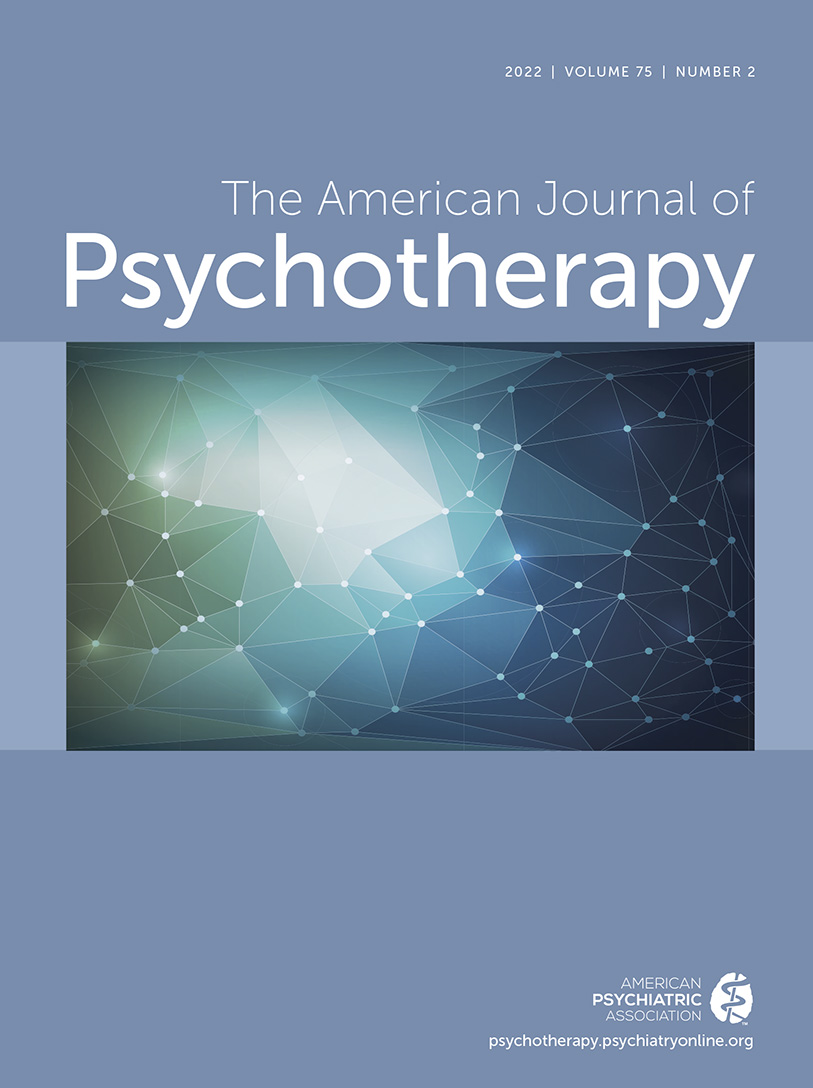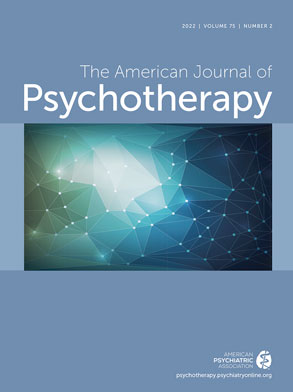The American Journal of Psychotherapy and its original parent organization, the Association for the Advancement of Psychotherapy (AAP), were both the creations of the visionary psychiatrist Emil A. Gutheil, M.D.
Dr. Gutheil, born in Poland in 1899, was educated at the University of Vienna. Trained as a neuropsychiatrist in Vienna, he studied psychoanalysis under Wilhelm Stekel, M.D., who was part of Sigmund Freud’s original inner circle. Realizing the danger that the Nazis represented, Dr. Gutheil and his wife, Lilly, whom he met during his training, immigrated to New York in the late 1930s.
Dr. Gutheil rapidly gained a reputation in New York as a clinician and an intellectual powerhouse. In 1939, he was invited to join the prestigious board of the Journal of Clinical Pathology and Psychotherapy (JCPP), where he established a subsection of psychotherapy.
Dissatisfied with the narrow space allocated to psychotherapy, Dr. Gutheil left the board of the JCPP in 1944 and began to explore alternatives for publishing his ideas and those of his small group of followers. In 1947, he founded AAP and its publication, the American Journal of Psychotherapy. In the inaugural issue, Dr. Gutheil emphasized that the journal would highlight issues in psychosomatic medicine, the social sciences, and education.
Dr. Gutheil also collaborated with others who were unhappy with the direction of psychoanalysis in New York, helping founder Lewis R. Wolberg, M.D., to establish the Postgraduate Center for Psychotherapy, which is still in existence. In honor of Dr. Gutheil’s dedication, in 1959 the center named its library after him. Among Dr. Gutheil’s many publications were The Language of the Dream (1939) and the Handbook of Dream Analysis (1951), which was translated into many languages. He was an erudite writer and an accomplished musician who played both the violin and viola in a weekly chamber music group.
After serving as the president of AAP and the editor-in-chief of the journal for 12 years, Dr. Gutheil died in 1959. In an obituary in the journal, Fredric Wertham, M.D., wrote of Dr. Gutheil, “His endeavor and achievement were not to make psychotherapy more psychoanalytic but to make psychoanalysis more psychotherapeutic” (
1). In the same obituary, Dr. Wertham noted that Dr. Gutheil always believed that the only true psychotherapy is human kindness
.It was Dr. Gutheil’s favorite student, Stanley Lesse, M.D., who took the reins of both AAP and the American Journal of Psychotherapy and became the journal’s longest-serving editor-in-chief (1959–1990). In his first editorial, Dr. Lesse wrote of wanting to make the journal a reference for clinical research, with case histories from various schools of psychotherapy. Dr. Lesse was a patient-oriented neuropsychiatrist who imbued the organization with his humanistic philosophy.
I joined the editorial board during Dr. Lesse’s last decade of leadership. When Dr. Lesse died, his chosen successor, Paul Trad, M.D., became editor, although sadly for only a few years (1991–1994). During his short tenure, Dr. Trad emphasized the importance of developmental and interpersonal orientations in psychotherapeutic practice within the broader scope of medicine.
Throughout the late 1980s and 1990s, the board devoted large segments of meetings to the financial difficulties of the organization. Despite our attempts to create an all-inclusive journal that published various credible points of view and theoretical persuasions in order to expand its reach, the journal remained supported primarily by psychiatrists.
Other mental health professions, meanwhile, established their own organizations, schools, and journals. As the American Journal of Psychotherapy’s original psychiatric audience became less interested (and less trained) in psychotherapy, individual membership dwindled to a few hundred members. By the time I became editor-in-chief in 1995, institutional subscribers provided the journal’s major financial support.
In view of the journal’s discouraging outlook, accepting such a responsibility seemed a highly questionable undertaking. However, as chair of the Department of Psychiatry at Albert Einstein College of Medicine and Montefiore Medical Center, I had access to certain human resources to sustain the journal, including the competent assistance of Ms. Tina Bonano, who became managing editor.
Furthermore, I made concerted efforts to expand the journal’s readership and recruit new members from a national
Who’s Who and to invite international figures in the field of psychotherapy to the journal’s board. All accepted my invitation, but a group led by two Viennese psychoanalysts, Dr. Leopold Bellak and Dr. Sophie Freud (who was the journal's long-term book editor), made demands, which I accepted, that they be totally independent from AAP leadership. They were sensitive to any potential conflict of interest regarding material chosen for publication and asserted the importance of an independent board for the survival of any journal. In fact, the board was so sensitive to the subject of influence that it rejected seven of the articles I had submitted for publication. Incidentally, all seven were accepted and published by the
American Journal of Psychiatry as lead articles (
2–
8).
In spite of concerted efforts from me and my predecessors, the journal continued to lose subscriptions and began to fail financially. Because my chairmanship at Einstein was coming to an end after 23 years and with no guarantee from the next administration to support the journal, I saw that the only option for the journal’s survival was to join another organization.
Although there were several potential takers, I thought the American Psychiatric Association (APA) would be the best option, especially because it had decided to discontinue one of its own journals, the Journal of Psychotherapy Practice and Research, and, despite our own financial difficulties, I agreed to assimilate it into the American Journal of Psychotherapy. The assimilation of the Journal of Psychotherapy Practice and Research had a salutary impact, as its two editors, Jerald Kay, M.D., and Allan Tasman, M.D., joined the board as associate members and began to oversee publication of research in psychotherapy and evidence-based studies.
While considering the possibility that APA would take the journal under its auspices, I offered the presidency of AAP and the editor-in-chief position to Bruce Schwartz, M.D., who was in a unique position of leadership both at Einstein and the APA. He succeeded in transitioning ownership of the journal from AAP to APA. When Dr. Schwartz was elected president of APA, however, he had to relinquish both positions and appointed Scott Wetzler, Ph.D., as his successor, who ultimately and gracefully terminated AAP. I am most grateful to both of them.
I look back a little nostalgically and admire all of my predecessors’ relentless efforts to fight dogmatic stands by offering an integrated approach to the field: Dr. Gutheil, with his comprehensive zeitgeist; Dr. Lesse, with his psychological and biological amalgamation; and Dr. Trad, with his emphasis on developmental issues. I expanded their views by establishing a model for a transtheoretical philosophy of psychotherapy that includes religious and spiritual perspectives with the universal tenets of love, compassion, and empathy, in addition to Dr. Gutheil’s doctrine of kindness.
In reflecting on the journal’s editorial history, I am reminded of a story. A young American tourist went to visit a well-known rabbi at his home in Israel. Noticing that there was no furniture in the house, the tourist asked, “Where are your belongings, Rabbi?” The rabbi replied, “Where are yours?” Puzzled by the rabbi’s answer, the young tourist said, “But I am just passing through!” The rabbi smiled. “So am I, my son, so am I!”
While many editors have “passed through” during these past 75 years, the journal has remained, and will remain, alive under the capable auspices of John McDuffie as APA’s publisher and the journal’s newly appointed editor-in-chief, the able and committed Holly A. Swartz, M.D.

